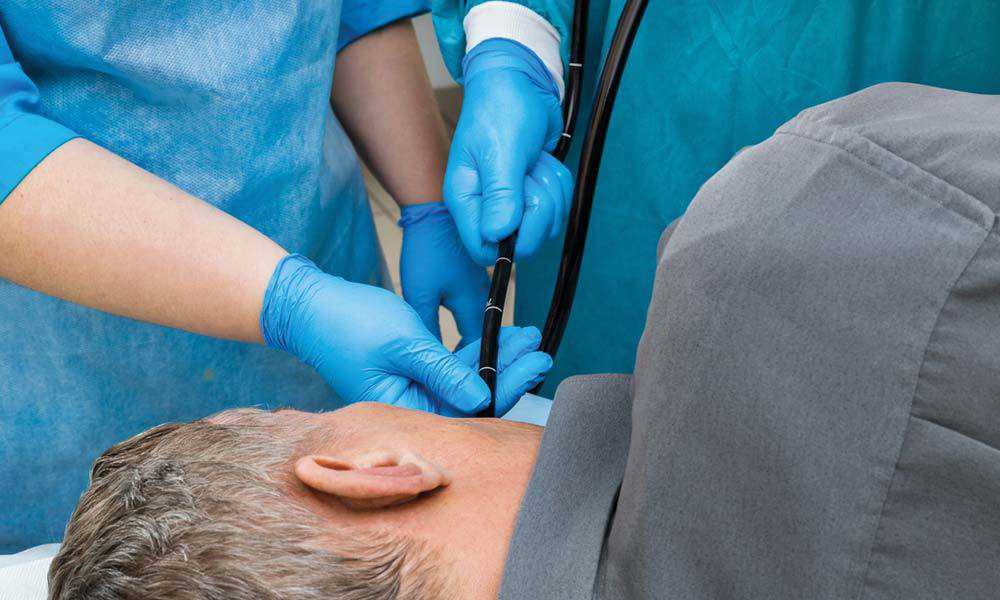
Though colon cancer is one of the most common cancers in North America, it's also among the most preventable. With regular screening through colonoscopies, doctors can detect and remove possible tumors before they spread and cause any serious damage or symptomatology. In this blog post, we'll take a deeper look into why you should consider getting screened for colorectal cancer and how a quality colonoscopy procedure can help keep your gastrointestinal tract happy and healthy.
Get to Know Colon Cancer and the Benefits of Early Detection
Colon cancer can be a deadly disease, but early detection can save lives. It is recommended that people at average risk for colon cancer get a colonoscopy starting at age 50 and potentially earlier for those with a family history or other risk factors. During a colonoscopy, a doctor examines the colon for any abnormalities or signs of cancer. While this procedure may cause anxiety for some, the benefits of early detection far outweigh any discomfort. Not only can early detection increase the chances of successful treatment and survival, but it can also prevent the cancer from developing altogether. Don't put off colon cancer screening any longer – it could be the difference between life and death.
What is a Colonoscopy and Why It's Important for Screening Purposes
A colonoscopy is an essential medical examination used to screen for colon cancer. It is a procedure where a doctor inserts a flexible tube with a camera on its end into the rectum and colon. This examination is crucial because it can detect early signs of colon cancer even when no symptoms are present. Colon cancer is one of the leading causes of cancer-related deaths worldwide, but with early detection, it can be treated successfully. Doctors recommend that everyone undergoes routine colon cancer screening starting at age 45 or earlier if they have a history of colon cancer in their family. While the colonoscopy screening process may seem daunting, knowing the early detection benefits are well worth the temporary discomfort. It's time to take action toward preventative health and get a colonoscopy screening done.
Understanding the Process of Having a Colonoscopy
For those who have never gone through the process of having a colonoscopy, it can seem quite daunting and intimidating. However, the importance of colon cancer screening cannot be stressed enough. A colonoscopy is a procedure that allows doctors to examine the inside of your colon in search of any abnormalities or signs of colon cancer. While the thought of having a colonoscopy might be uncomfortable, the procedure itself typically only lasts around 30 minutes and is performed while patients are under sedation. Understanding the process of having a colonoscopy can help reduce the fear and anxiety surrounding the procedure, ultimately leading to more individuals getting screened for colon cancer and catching it early on.
How to Prepare for the Procedure
Preparing for a colonoscopy can be a daunting experience, but it doesn't have to be. This important procedure can help detect early signs of colon cancer and ultimately save lives. To prepare for your colonoscopy, your doctor will likely provide instructions on how to prepare your bowels. This typically involves following a specialized diet and taking medication to help clear out your colon. It's important to follow these instructions carefully to ensure your colon is properly cleansed before the procedure. While the preparation process may not be enjoyable, it is a crucial step in ensuring the best possible outcome. Don't hesitate to ask your doctor any questions or voice any concerns you may have about the preparation process or the colonoscopy itself. With the right preparation and care, you can help prioritize your health and well-being.
Aftercare After a Colonoscopy
After a colonoscopy, proper aftercare is essential for a quick and safe recovery. This procedure is one of the most effective colon cancer screening methods, but it may leave you feeling a bit uncomfortable afterward. Some possible side effects may include cramping, bloating, or light bleeding. It's important to follow your doctor's instructions carefully to prevent complications and ensure that the procedure is successful in detecting any potential issues. This may involve resting for a few hours, avoiding certain foods or drinks, taking prescribed medicine, and scheduling a follow-up appointment with your doctor. Remember, aftercare is key to maintaining good health and preventing future health problems.
The Benefits of Monitored Screening Tests For Colorectal Cancer Prevention
Colorectal cancer is the second leading cause of cancer deaths in the United States. The good news is that this type of cancer is preventable. Routine colon cancer screening is recommended by all major medical associations for individuals over the age of 50. By having a colonoscopy or other monitored screening tests, doctors are able to detect and remove precancerous polyps before they turn into cancer. Early detection of colorectal cancer can significantly increase the success rate of treatment. Additionally, screening tests can uncover the cancer before it has a chance to spread to other parts of the body. Though the idea of a colonoscopy may not be pleasant, it is essential to maintaining your health and preventing serious cancer from developing. Remember, regular colon cancer screening saves lives.
